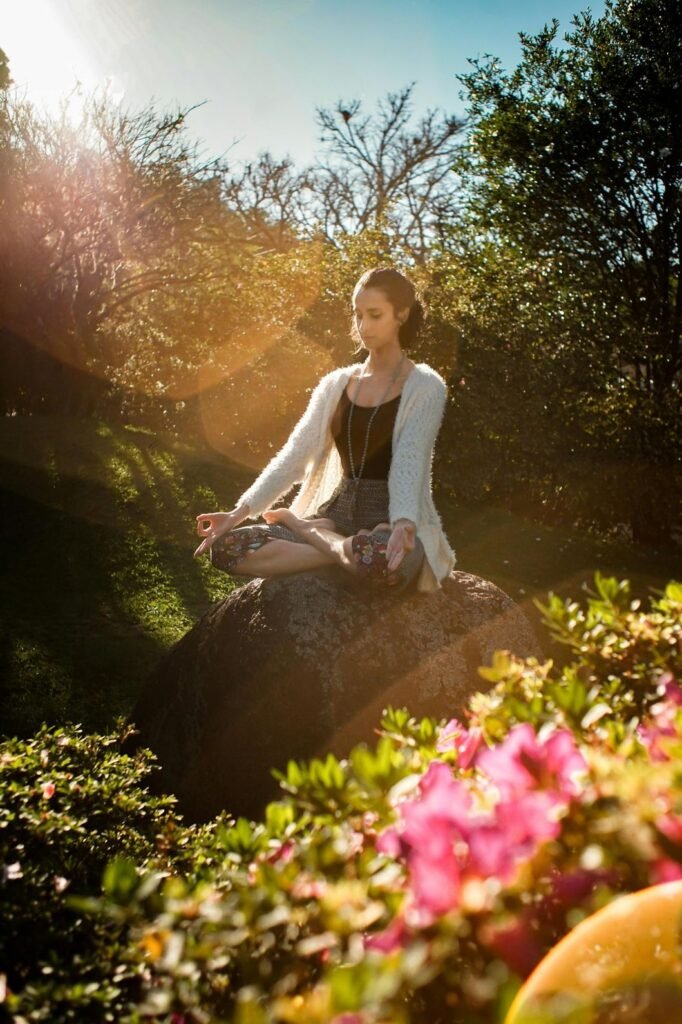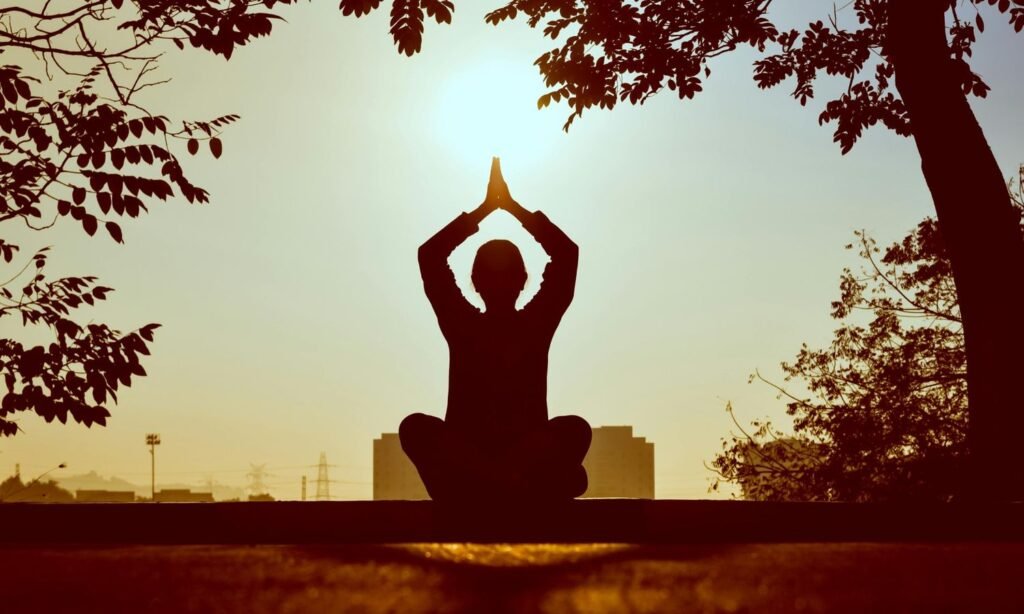According to Divya TS, shooting demands a keen sense of focus and accuracy. Given that she won two silver medals at the 2023 Asian Games, she would be aware. “Shooting is an intellectual sport. Doubts can cloud your judgment and divert any athlete from their objective,” the 29-year-old explains. Her secret weapon in these situations is not her gun but rather meditation, a much more non-violent form of guidance. “All of my uncertainties vanished when I discovered the Sudarshan Kriya of the Art of Living, which combines pranayama and meditation. I can now stay composed and concentrated even in the most trying circumstances since my mind is clearer,” she says.

For a long time, meditation—a practice with roots in ancient Indian spiritual traditions—was reserved for the retired. In order to maintain their composure and poise in a world that is becoming more and more stressful, more young people, like Divya, are now warming up to it.
According to neuro coach Saloni Suri, social media has a role in the youth appeal. “Young influencers like Masoom Minawala, Karishma Mehta of Humans of Bombay and Ranveer Alahbadia have shared the many benefits of meditation, leading young people to start embracing it,” according to her. About 48% of applications for 10-day courses in the recent past, according to the Goa Vipassana Trust, have come from people in the 19–30 age range.
It is driving both the problem and the solution, as is frequently the case with social media. The brains of children and young adults are being conditioned to accept a dopamine boost from external cues like an Instagram reel due to social media distractions. It’s possible that their concentration will deteriorate with time, and their demand for immediate satisfaction will increase. According to Bheem Singh, meditation can assist in calming the mind and refocusing it on the here and now.
It helps them fight stress, according to Rajnish C. Tripathi, an associate professor of physical education at Govt Girls College Varanasi. “Today’s youth deal with enormous pressures in their academic, social, and professional lives, which increases stress, anxiety, and burnout. Tripathi, who completed his postdoctoral degree in positive youth development through sports, yoga, and meditation at Wittenberg University in Ohio, adds, “Meditation has gained traction as an accessible solution to these problems, an effective method for mental clarity, and self-care.”
Angona Paul, a 35-year-old instructional designer from Pune, was dealing with a problematic relationship when she enrolled in Vipassana in 2011. You must be completely silent during Vipassana, and you are not allowed to bring any belongings, including books, cell phones, or even pens and paper. It is comparable to undergoing mental surgery.

You cannot leave mid-surgery or engage in other activities. We forget to sit quietly and simply pay attention to our breathing because we are surrounded by so much pointless conversation in our daily lives. Advertising professional Aritra Chaudhuri claims that after completing a 10-day Vipassana course at a meditation center in McLeodgan, Himachal Pradesh in 2023, he feels much calmer and is able to approach conflict situations in a balanced and detached manner. “Vipassana taught me about the impermanence of life, showed me how to focus, and not get carried away by my emotions,” she says.
He compares meditation like caring for a sapling. Imagine a sapling on a boulevard that cuts across the middle of a crowded street that is crowded with people, cars, carts, and hoardings. Slowly, the commotion and people begin to fade away until just you and the sapling remain. You water it sincerely. The tree that was once a seedling is now producing fruit. Now, water the seedling and consider it your purest thinking. “I feel like nothing else matters in this world,” the 39-year-old Delhi resident said.
Harvard researchers discovered in a 2011 study that mindfulness meditation cultivates emotional intelligence, resilience, and self-awareness by altering brain regions related to memory and stress. Research has also demonstrated how mindfulness exercises can enhance mental well-being. “Starting early gives young people the tools to develop healthier coping mechanisms, reducing the risk of mental health issues in adulthood.” states Tripathi.
Ira Trivedi Mantena, a yoga instructor and author, claims that meditation has changed her life. “It helps me stay grounded, improves my focus, and brings a sense of calm and clarity to my day.” “For young people, it’s a powerful tool to navigate stress and reconnect with themselves in today’s fast-paced world”, she says.
WORLD ITATION DAY
According to Tripathi, it improves sleep, lowers cortisol levels, and fights inflammation, heart disease, hypertension, and digestive problems. According to marketing expert Abhishu Rakshit, “Darshan Kriya not only changed the way I breathed, it increased my lung capacity in a matter of days.”
Acharya Prashant, a spiritual teacher, believes that today’s youth are constantly being urged to succeed, compete, and fit in. Desires, aspirations, and fears to succeed, be loved, and be someone are continually thrown at them, making their inner cacophony intolerable. The purpose of meditation is to permanently quiet this chatter.
According to life coach and Art of Living instructor Tanushree Bishnoi, the younger generation’s embrace of mindfulness is encouraging. They’ve come to the realization that celebrity and fortune don’t guarantee happiness. She claims that meditation provides them with a route to more profound meaning.
